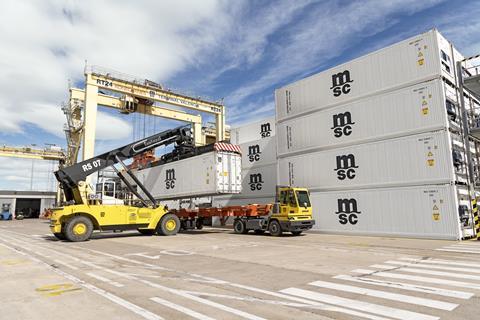Egyptian citrus, European apples and Indian grapes are amongst the products caught up in the maritime disruption
A decision by the main container lines to suspend sailings along the Red Sea route is disrupting key fruit trades. CMA CGM, Hapag-Lloyd, MSC and Maersk are among the shipping companies that have decided to divert ships to the Cape of Good Hope as soon as possible due to attacks by Houthi militants on civilian vessels.

According to analysts from EastFruit, the suspension comes at the height of the Egyptian orange harvest and has led to a serious crisis for the country’s citrus producers. It is also creating a deficit of oranges for consumers in Asia – one of the most attractive export markets for Egypt. Currently, Egyptian exporters are urgently looking for alternative routes to ship their fruit, and Egyptian growers were forced to suspend harvesting oranges, fearing a collapse in prices.
Egypt is the third largest exporter of fresh oranges in the world after Spain and South Africa. In addition, it is believed that Egypt exports the most competitively priced citrus. The main orange markets for Egypt are Russia, Saudi Arabia, Bangladesh, the European Union, India, UAE, UK, China, and Malaysia.
“Given the situation in the Red Sea, more than a third of all orange exports from Egypt, the most profitable part of it, are currently blocked, impacting growers, traders, transportation companies and consumers,” said FAO economist Andriy Yarmak.
Egypt is the main supplier of fresh oranges to Southeast Asia at this time of year. Therefore, here, too, a serious shortage of products is brewing, which, even with a strong desire, other suppliers, such as China and the US, will not be able to cover. Moreover, China itself is a major buyer of oranges from Egypt. At the same time, the harvesting of oranges in the countries of the Southern Hemisphere will begin only in June.
“Most likely, under these conditions, Spain will increase orange shipments to Southeast Asian countries using a bypass route, and Egypt will begin to supply more oranges to the EU and Eastern European countries until the logistics situation normalises. However, no one can say yet when it will return to normal,” EastFruit said.
Apple exports from a number of European will also be disrupted by the shipping diversion. “Ukrainian apple exporters will face problems supplying the markets of the Middle East, which are currently the main importers of Ukrainian fresh apples. Suppliers from Poland, Italy and, of course, Moldova will have similar problems. In these conditions, apple exporters from Iran will have an advantage on the Indian and UAE markets,” produce market expert Fedir Rybalko told EastFruit.
Meanwhile, Indian table grape producers gearing up for the start of the export season to Europe are keeping a watchful eye on how the situation develops. There is no doubt that shipping schedules will be affected if the situation persists and freight costs and transit times will go up.
However, a report in The Economic Times said Indian exporters remain confident that exports to Europe will increase this season thanks to high demand for Indian grapes in Europe because of lower supplies from South America.



